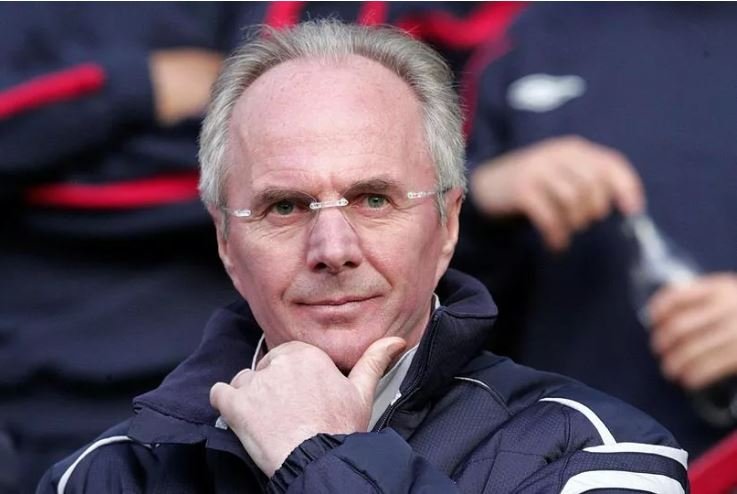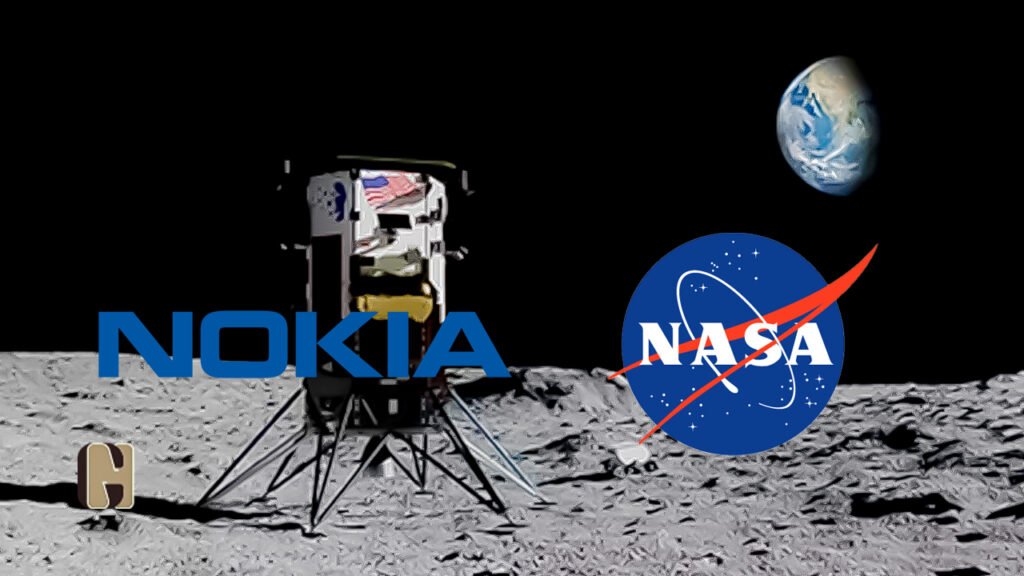News
Sven-Goran Eriksson A Great Footballer Lost to Cancer
The greatly known football personality Sven-Goran Eriksson has passed at 76. News of his death due to pancreatic cancer hit very many people. The deceased has a long-term impact on his field. His career was highly successful across Europe and beyond. Eiriksson became the England national team’s head coach, making him the first foreign manager. Sven Goran Eriksson Biography speaks of how he made history in the game. His triumphs in football have come with tribulations.
Sven Goran Eriksson Biography
Sven-Goran Eriksson is the name given to the individual born on February 5, 1948, in Sunne, Varmland, Sweden. The childhood of Eriksson was surrounded by the serene environment of Swedish lakes and forests. As a child, Eriksson was active in almost all sports activities. Much of his early years were involved in ski jumping, ice hockey, and cross-country skiing. Such activities imparted a sense of discipline and competitiveness to Eriksson. His dedication to sports will always be the foundation for his subsequent career.
Eriksson grew up in an industrious family. His mother, Ulla, raised him. He had one younger brother, by the name of Lars-Erik. The family set a good ground for Eriksson to pursue his interests with vigor. Even though he had plans at first to work in insurance this passion in sport gave way. It finally brought him to the world of football.
The interest in football developed in Eriksson’s formative years. It gave him a way could express his inner person. The curiosity of Eriksson in football originated when he played in the local games. His exposure on the field at that early stage gave him knowledge of the game. It was such exposure that commenced his life journey in football.
Sven Goran Eriksson Early Career
Eriksson stopped playing early enough in his life, but his playing career can at best be called modest. At 27, he decided to retire from playing, which meant that a new venture lay ahead of him. He would start coaching small teams in Sweden, and this way, he gained enough experience and insight into managing football teams. Here, soon it came into the limelight that Eriksson’s commitment and analytical thinking were great.
The breakthrough for Eriksson came at IFK Goteborg, where he achieved phenomenal success. He won the 1982 UEFA Cup with the team, using it as a platform to showcase his tactical acumen. It became a turning point in his career. Success with Goteborg for Eriksson meant that international opportunities began to beckon. He was first noted for innovation amongst a great many other managers in the field. The key events in his early career are well documented in The Sven Goran Eriksson Biography.
First Foreign Manager of England
The appointment of Sven-Goran Eriksson as the first foreign manager of the England national team was really a moment of history. Eriksson faced a lot of challenges as the manager of England. His style in leadership, which is based upon consensus and wisdom in decision-making, was tested live. Sometimes, his personal life overshadowed his professional achievements, but he did not turn back and carried on his work to lead the team to success.
Eriksson’s term in charge of the England national team was not without important matches that served to define his legacy. The famous 5-1 victory over Germany is, thus, one of the memorable moments during the career of the Swede. He always won respect and admiration through his tactical intelligence and his ability to build relationships with players. His narrow focus on tactics in coaching was respected, but his broad appreciation of human nature was adored by players. Eriksson’s managerial legacy testifies to his fealty and his passion for the sport.

Image Source: birminghammail
Personal Battle with Cancer
“Sven-Goran Eriksson was diagnosed with terminal cancer, an event that changed his life profoundly. Pancreatic cancer introduced numerous challenges in the life of Eriksson. Doctors managed to explain to Eriksson how critical the illness was. The attitude of Eriksson towards the diagnosis was very courageous and optimistic. Treatment offered a little hope for recovery, though very minimal. It was almost zero. But, their commitment of Eriksson made him not to lose hope at all. Eriksson’s attitude toward the illness popularized confession among the football society.
Eriksson spoke about his battle with cancer very gracefully. In fact, during several interviews and documentaries, there was always that positive perspective in the face of adversity. The will to fight cancer at whatever cost is something that was communicated to fans and colleagues by Eriksson. The football family came out to rally behind him, with a show of support and many tributes. His reflections brought out elements of loyalty and forgiveness. All these personal insights have been captured in the Biography of Sven Goran Eriksson, bringing out great strength and resilience in Eriksson.”
What Cancer Did Sven-Goran Eriksson Have
Sven-Göran Eriksson has been diagnosed with pancreatic cancer, a very aggressive and hard-to-deal-with type of cancer that deals with the organ-producing enzymes to help in breaking down food and other hormones that regulate blood sugar. This kind of cancer, therefore, is detected very late because its symptoms are very subtle and in turn very hard to treat. In Eriksson’s case, his cancer was inoperable, and he took his battle with the disease into the public eye, maintaining his positive outlook even though the prognosis was grim.
Pancreatic cancer is a cancer that starts in the pancreas, a gland located in the abdomen. It helps with digestion and blood sugar regulation. This cancer is dangerous because it often is found late after it has spread. Symptoms may be vague, such as abdominal or stomach pain, weight loss, or yellowing of the skin (jaundice). Treatment depends on how advanced it is. Surgery, chemotherapy, and radiation are usually used to try to cure it, but it is very hard to cure, especially if it is not caught early.
How Long was Sven-Goran Eriksson England Manager
Sven-Göran Eriksson served as the manager of the England national football team from January 2001 until July 2006, a period of about 5 years and 6 months.
Here are some key details about his tenure:
- Appointment: Eriksson was appointed as England’s first foreign manager in October 2000, but he officially took over the role in January 2001. He succeeded Kevin Keegan, who had resigned in October 2000.
- Major Tournaments:
- 2002 FIFA World Cup: Eriksson led England to the quarter-finals, where they were defeated by Brazil, the eventual winners.
- UEFA Euro 2004: England again reached the quarter-finals but were knocked out by Portugal on penalties.
- 2006 FIFA World Cup: In Eriksson’s final major tournament as England manager, the team reached the quarter-finals for the third consecutive time, losing to Portugal, once more, on penalties.
- Style and Impact: Eriksson was known for his calm demeanor and tactical approach. Under his management, England was consistently competitive in major tournaments, although his inability to take the team beyond the quarter-finals led to some criticism.
- Resignation: Eriksson announced in January 2006 that he would step down after the 2006 World Cup. His departure was confirmed following England’s elimination from the tournament in July 2006.
During his time in charge, Eriksson managed 67 matches, winning 40, drawing 17, and losing 10.

Image Source: sofoot
Who was England’s Manager in 2000
In 2000, Kevin Keegan headed the national football team of England. He held office from February 1999 to October 2000. Keegan stepped down after his side suffered a 1-0 loss at the hands of Germany in a qualifying match for the 2002 World Cup at the old Wembley Stadium. Peter Taylor took over the role for the meantime as caretaker manager following his resignation until 2001, when Sven-Göran Eriksson was appointed.
Sven-Goran Eriksson’s Retirement
Sven-Göran Eriksson did not retire from football management after his tenure with the England national team. Instead, he stepped down from his position as England manager due to a combination of factors:
- Media Scrutiny: Eriksson faced intense media scrutiny throughout his time as England manager, particularly regarding his personal life and his management decisions. The constant pressure from the media became a significant factor in his decision to leave the role.
- Performance Criticism: Despite guiding England to three consecutive quarter-finals in major tournaments (2002 World Cup, Euro 2004, and 2006 World Cup), Eriksson was often criticized for his conservative tactics and his inability to take the team beyond the quarter-final stage. This criticism contributed to the perception that England needed a change in leadership.
- The “Fake Sheikh” Scandal: In January 2006, a newspaper sting operation by the News of the World involving a reporter posing as a wealthy Arab sheikh caught Eriksson making candid remarks about players and his future with the England team. The scandal caused significant embarrassment for the Football Association (FA) and further eroded support for Eriksson.
- Mutual Agreement: In light of the ongoing criticism and media pressure, Eriksson and the FA agreed that he would step down after the 2006 World Cup. The decision was announced before the tournament, allowing Eriksson to focus on the World Cup without the distraction of speculation about his future.
After his stint with the English team in July 2006, Eriksson continued to be in football management and had roles both at club and national levels in countries such as Mexico, Ivory Coast, and Manchester City. His exit from the England job is not a retirement from football, rather a means to a transition that will open up other opportunities within the sport.
FAQ:-
Sven-Goran Eriksson: A Great Footballer Lost to Cancer
1. Who is Sven-Goran Eriksson?
Sven-Goran Eriksson is a well-known football manager and former footballer from Sweden. He is recognized for his contributions to various football clubs and national teams, including England, Italy, and Sweden.
2. Was Sven-Goran Eriksson a footballer?
Sven-Goran Eriksson is primarily known as a football manager rather than a footballer. His career as a manager is highly celebrated, but he did play football at a lower level before focusing on management.
3. Did Sven-Goran Eriksson pass away from cancer?
Yes, Sven-Goran Eriksson passed away from cancer.
4. What are Sven-Goran Eriksson’s major achievements in football?
Sven-Goran Eriksson has had a successful career as a football manager. Notable achievements include managing the England national team, leading Lazio to Serie A and Coppa Italia victories, and achieving success with clubs in Portugal, Mexico, and other countries.
5. Has Sven-Goran Eriksson been involved in any charitable work or cancer awareness campaigns?
While there are no specific records of Sven-Goran Eriksson being involved in cancer awareness campaigns, many football personalities engage in various charitable activities. It is always a good idea to check the latest updates from credible sources for current information.
6. What is the current status of Sven-Goran Eriksson?
As of the most recent updates, Sven-Goran Eriksson is alive and continues to be a respected figure in the football world. For the latest information, it is best to refer to recent news sources.
7. Where can I find more information about Sven-Goran Eriksson?
For more information about Sven-Goran Eriksson, you can check sports news websites, official football club pages, and biographies. His career details and achievements are well-documented in sports archives and databases.
8. What has Happened to Sven-Goran Eriksson?
Sven-Göran Eriksson, the Swedish football manager, has retired from coaching. After a long career managing various clubs and national teams, including England, he has largely stayed out of the spotlight in recent years.
9. What Cancer did Sven-Goran Eriksson Have?
Sven-Göran Eriksson had skin cancer.
News
Fyre Festival II Tickets Selling for Up to $1.1 Million
Fyre Festival 2 is officially happening, with tickets now on sale, ranging from $1,400 to a staggering $1.1 million. The sequel to the infamous 2017 festival disaster is set to take place on Isla Mujeres, Mexico, and promises an exclusive three-day experience filled with music, art, cuisine, and adventure.
Who’s Behind It?
Billy McFarland, the convicted fraudster behind the original Fyre Festival, is leading the event once again. However, this time, the festival is being managed by Lostnights, a seasoned live event production company. Despite McFarland’s assurances that “Fyre 2 will be a historic experience”, skepticism remains high.
What’s Included in the $1.1M Package?
The highest-tier ticket package, dubbed “Prometheus: God of Fyre”, includes:
- Luxury yacht accommodations
- Exclusive beachside performances
- VIP access to events and excursions
- Private dining experiences
No Lineup Announced Yet
As of now, no official artist lineup has been revealed. However, McFarland has hinted that it will feature electronic, hip-hop, pop, and rock acts.
Is It Worth the Risk?
Many remain skeptical about whether Fyre Festival 2 will actually happen or if it will be another high-profile failure. Tickets are available on the official Fyre Festival website, but given the history of false promises, potential attendees may want to proceed with caution.
News
Nokia Deploys First 4G Network on the Moon
Nokia has made history by deploying the first 4G/LTE cellular network on the Moon. This groundbreaking achievement is part of NASA’s IM-2 mission and was made possible through a partnership with Intuitive Machines, a private space exploration company.
The network, known as the Lunar Surface Communication System (LSCS), was integrated into Intuitive Machines’ Athena lander and successfully launched aboard a Nova-C class lunar lander named Odysseus. This technology will support future exploration by providing high-speed connectivity between lunar vehicles, robotic systems, and Earth.
Why Does the Moon Need 4G?
Nokia’s 4G network is designed to improve connectivity for future crewed and uncrewed missions. The network will:
- Enable real-time communication between landers, rovers, and astronauts.
- Support high-definition video streaming, telemetry data transmission, and command-and-control functions.
- Help with resource mapping, particularly in the Moon’s south pole region, where scientists search for water ice deposits.
How Does It Work?
The LSCS system is housed within Athena’s carbon-composite panels and is built to withstand the harsh conditions of space travel. It connects to two lunar mobility vehicles:
- Micro-Nova Hopper: A mini-lander designed to explore permanently shadowed lunar regions.
- MAPP Rover (Mobile Autonomous Prospecting Platform): A robotic rover developed by Lunar Outpost to traverse the lunar surface and carry out exploration tasks.
Once operational, the rover will deploy from Athena, extend its antennas, and connect to Nokia’s 4G network, ensuring a seamless communication link back to Earth.
Future of Lunar Communications
This project is a key step toward building a permanent lunar infrastructure. Nokia and Intuitive Machines hope to expand this technology to Mars, allowing cellular networks to play a vital role in deep-space exploration.
Steve Altemus, CEO of Intuitive Machines, described the initiative as a “transformative moment in the commercialization of space”, emphasizing its importance in NASA’s Artemis program, which aims to establish a sustainable human presence on the Moon.
This deployment is expected to revolutionize space exploration, paving the way for human settlements, resource extraction, and future Moon-based industries.
News
Instagram May Be Launching a Separate Reels App

Instagram is reportedly exploring the idea of launching a standalone app for Reels, aiming to compete more aggressively with TikTok. This move could separate short-form video content from the main Instagram app, providing a dedicated space for Reels content, similar to how Facebook once separated Messenger from its main app.
Why Instagram Might Do This
A separate Reels app could give Instagram a stronger presence in the short-video market. Many users currently prefer TikTok for its algorithm-driven discovery and engagement.
Having a standalone app may allow Instagram to enhance user experience, making Reels more appealing with features that could rival TikTok.
Currently, Reels can get buried in Instagram’s interface. A dedicated app might provide better reach and discoverability for creators and brands.
Potential Challenges
- User Adoption: Instagram previously launched Threads as a separate messaging app, but it struggled to gain traction. A Reels app might face the same issue.
- Impact on Instagram’s Engagement: If users move to a new app for Reels, this could lower engagement on the main Instagram app.
- Content Strategy for Brands: Businesses and influencers will need to decide whether to focus on Instagram Reels or shift efforts to the new app if it launches.
What This Means for Users and Creators
If Instagram moves forward with a separate Reels app, early adopters could benefit from increased exposure. However, if the app fails to gain popularity, it could follow the fate of other short-lived experiments. For now, Instagram has not officially confirmed the launch, but reports suggest testing may already be underway.
Would you be interested in using a standalone Reels app, or do you prefer having everything within Instagram?
-

 News1 year ago
News1 year agoKolkata Doctor Case: Tragic Story of Dr. Moumita Debnath
-

 Health And Fitness1 year ago
Health And Fitness1 year agoPepsi Zero Sugar vs Diet Pepsi: Which Is Healthier?
-

 Health And Fitness12 months ago
Health And Fitness12 months agoHow to Choose a Rehab for Lasting Recovery
-

 News1 year ago
News1 year agoLondon King Opens Up About Her Relationship with Rob Schneider
-

 Tech Innovation1 year ago
Tech Innovation1 year agoTop Machine Learning and Deep Learning Trends for 2024
-

 Tech Innovation1 year ago
Tech Innovation1 year agoHuawei Mate XT: A Detailed Review of the World’s First Tri-Fold Smartphone
-

 Health And Fitness1 year ago
Health And Fitness1 year agoCoca-Cola Zero Sugar vs Diet Coke: Which One to Choose In 2025?
-

 News11 months ago
News11 months agoTyra Banks Biography: Age, Husband, Net Worth



